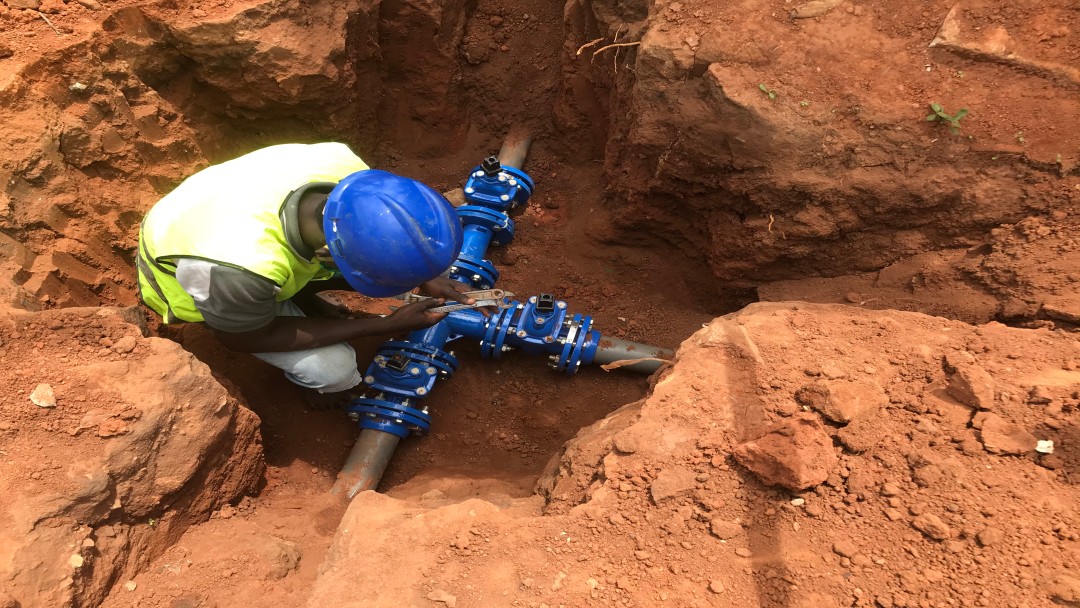
KfW, on behalf of the German Federal Government, is providing funding of just under EUR 45 million for a safe drinking water supply for the poor in the suburbs of Abomey-Calavi in three phases. Access to clean water is particularly important during these times of COVID-19.
In Abomey-Calavi, Benin’s second largest city, ditches are being dug, pipes laid and pressure tests conducted. The state is working at a rapid pace to carry out the infrastructure project, which is supported by funds from the German Federal Government through KfW. 300 kilometres of pipelines are being laid to guarantee a safe water supply in selected suburbs. On behalf of the German Federal Ministry for Economic Cooperation and Development (BMZ), KfW is financing the expansion of the drinking water pipelines.
Until now, neither private households nor commercial businesses had their own connection in some suburbs of the big city. Water was drawn from Lake Nokoué, shallow wells or purchased at kiosks from resellers. But this water was not always clean. Faecal matter and grey water mixed with drinking water.
The suburbs of Abomey-Calavi and the adjacent capital Cotonou are growing rapidly. Domestic immigration, in particular, is intensifying urbanisation. Growth of ten per cent per year is assumed for Abomey-Calavi. Many immigrants first move to the outskirts of the city, which hardly have any infrastructure. Benin is one of the poorest countries in the world. More than half of the population lives in poverty. To date, even in the cities, not even half of the inhabitants have a water connection in their own house or yard. The sewerage system is still very small and the wastewater is not treated.
Hygiene is particularly important during the current COVID-19 pandemic. Expanding the drinking water supply in Abomey-Calavi will make it easier for residents to wash their hands regularly. Public institutions and hospitals also need clean water for their hygiene measures. For households that cannot afford the initial investment in a service connection despite discounted terms and conditions, additional yard connections and standpipes are being installed.
The project will contribute to decreasing child mortality and worm diseases, which have been common up to now, as well as protecting water as a resource. The project provides around 300,000 people with new or improved access to a supply of clean drinking water for the first time. Around half of the target group is poor. The project helps to alleviate the disadvantages of the inhabitants in neighbourhoods in Abomey-Calavi with a predominantly poor population.
Poor women and girls are particularly helped by infrastructure development, as they are usually responsible for the strenuous and time-consuming task of fetching water due to the traditional division of labour at home.
Share page
To share the content of this page with your network, click on one of the icons below.
Note on data protection: When you share content, your personal data is transferred to the selected network.
Data protection
Alternatively, you can also copy the short link: https://www.kfw-entwicklungsbank.de/s/enzBX9vj
Copy link Link copied